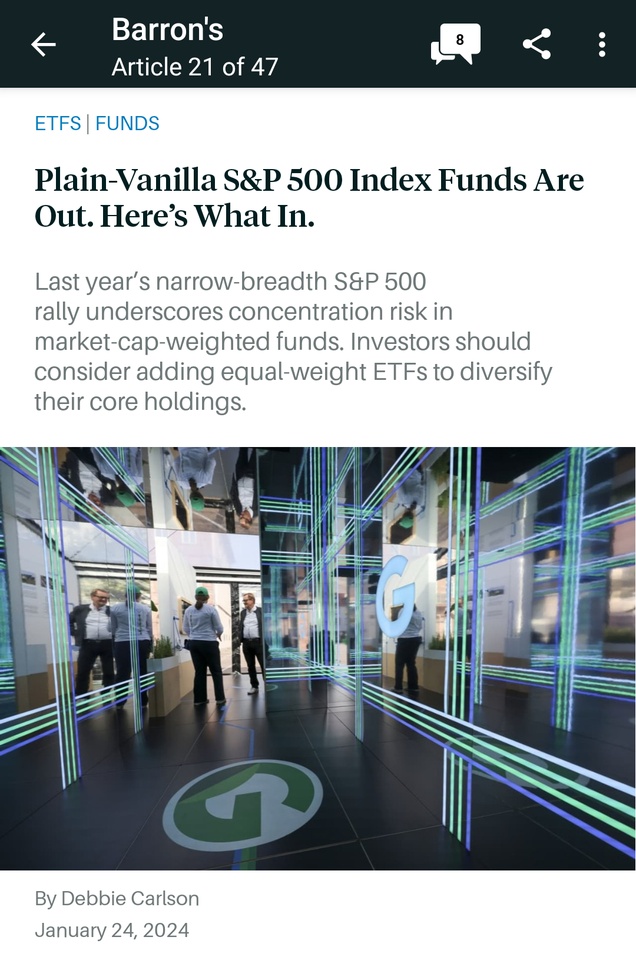Equal-Weight ETFs
In recent weeks I have read quite often that equal-weighted ETFs are currently a good strategy, as the S&P500, but also other indices, have become quite expensive and concentrated (e.g. with the "Magnificent Seven").
A strategy where all stocks would be equally weighted would bring more returns in such times.
Barron's also writes in its article that actually over the long term (20 years), equal-weight S&P500 ETFs yield more than the classic market-cap-weighted index (11.5% instead of 10.3%).
My question is then:
- Do you guys follow such strategy?
- What do you think?
- Do you already have such an ETF in your portfolio?
Here are a few examples of distributing ETFs that I have found:
I honestly don't have an opinion on this yet, but I will certainly research this topic.
Thank you! 😊








